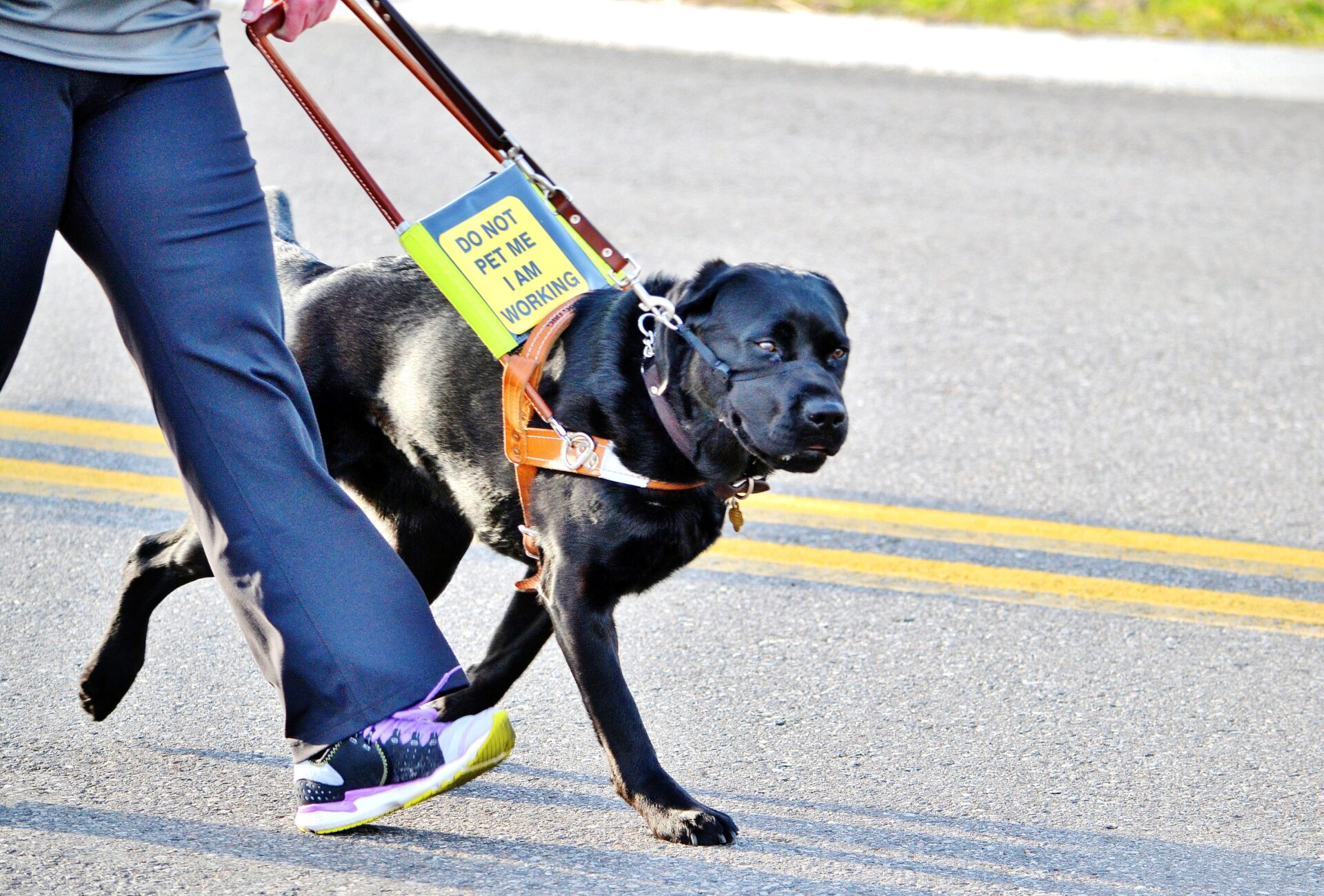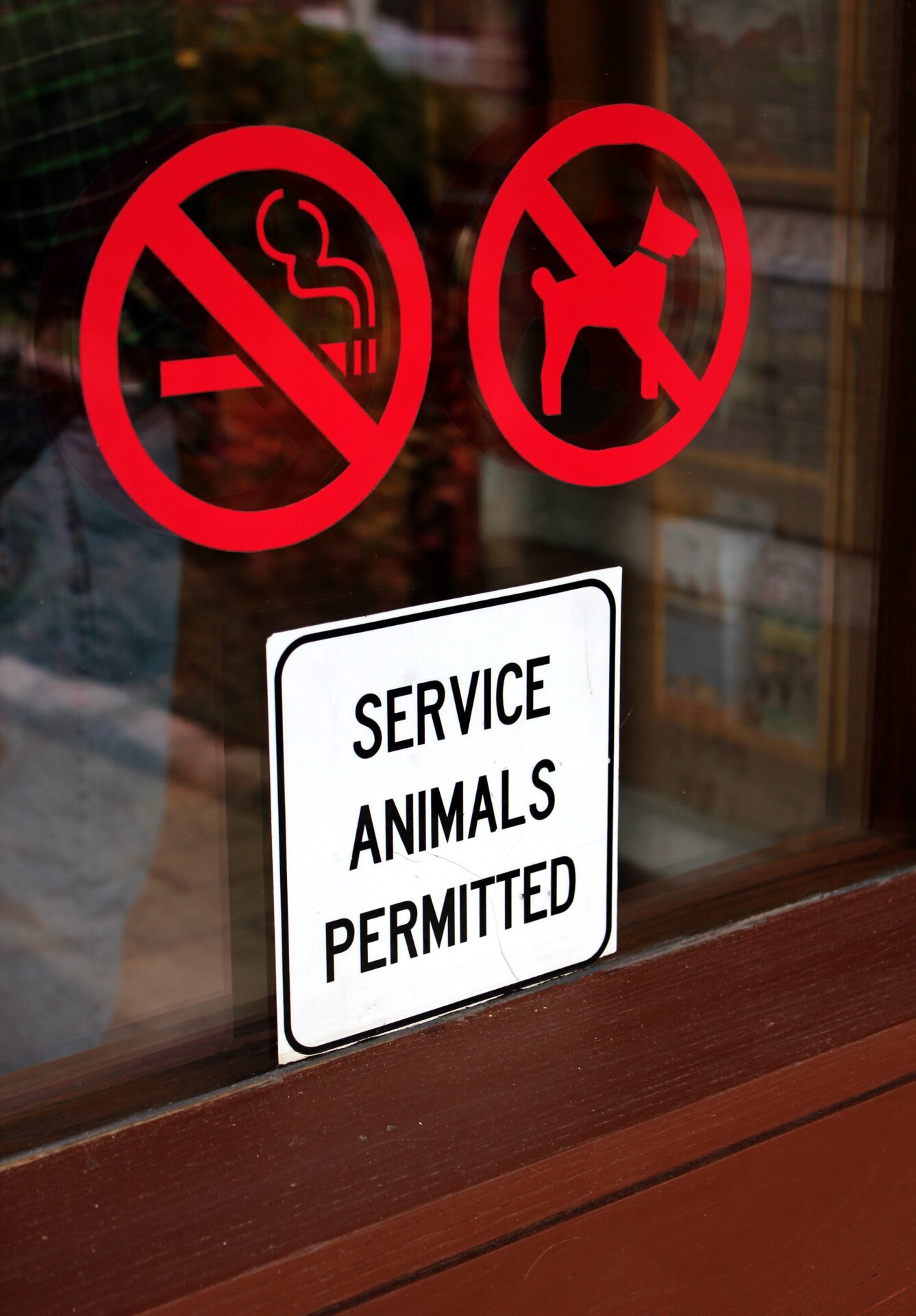Register Your Pet As An Emotional Support Animal in BC
Register Your Pet As An Emotional Support Animal in BC
Most pet parents will agree their animals already bring loads of love and comfort into their lives. Why not make it official? If you believe you could be eligible for an emotional support animal (ESA), follow the steps below to ensure you and your pet are protected under British Columbia law.

Who Is Eligible?
While the deciding verdict will be between you and your doctor or mental health professional, some conditions known to have been accommodated are:
- PTSD and C-PTSD
- Chronic pain
- Anxiety with or without panic attacks
- Depression
This is not an exhaustive list! If you feel you could benefit from an ESA, speak to your healthcare provider and together assess whether your quality of life under your illness or disability could be supported by an ESA.
Service Animal vs. Emotional Support Animal
The definition of an assistance animal varies by province, but it generally describes an animal that brings support and comfort to someone with a physical, mental, emotional, or psychological disability. This description has, in the past, only applied to Service (physical and psychiatric) dogs. Emotional support animals are now finally getting the recognition they, and the support you, deserve.

Unsurprisingly, service animals that aid people with physical disabilities, like visual impairment, diabetes, or epilepsy, are subject to rigorous training. There is similarly intensive preparation for psychiatric service animals, who might learn to bring medication to its owner or predict and comfort panic attacks.
Emotional support animals do not require any specific, regulated training regimen. Your pet can become an ESA without significant time or financial investment. This is fantastic because of its low-barrier nature. What is required, however, is an ESA letter – see below!
ESA Letter – You Need This!
An emotional support animal letter is essential, and you are unprotected without it. The letter must be written by the doctor or certified mental health professional currently overseeing your care. Have your provider detail in the letter why your ESA is a critical element of your clinical treatment plan, and in what capacity you will need them for support. This is the document you will present to any questioning authority or would-be landlord in requesting accommodations to the typical rules. Make sure to always have it on you if you’re anticipating needing to prove the validity of your ESA!
Protection Under The Law
There is varying information on ESAs in Canada, some claiming ESA owners are included in the governmental protections regarding Service Animal rights. This is partially true. An ESA is not the same as a Service Animal, at least not officially, and is not afforded quite as many protections. This will likely change, as the rights for ESA owners are already quickly evolving, some provinces faster than others.

Employment Rights
Unlike with trained service animals, employers are not required to permit ESAs in the workplace. But don’t lose hope quite yet! Many employers, if presented with a valid ESA letter, may accept an ESA to reside in the office based on compassionate grounds. Speak to your boss or manager privately and assure them your productivity and value to the workplace will increase in the company of your ESA.
Housing Rights
An ESA letter does not give you the protection to overrule ‘No Pet’ housing. The closest you can get is attempting to invoke British Columbia’s Human Rights Code Chapter 210, which states that: “A person must not deny to a person with a disability residential premises advertised or otherwise represented as available for occupancy by a tenant.” Your best bet is finding accommodation that allows animals, but we know this is not a particularly easy feat, especially in Vancouver. Speak with your potential landlord and explain the contents of your ESA letter, with the possibility of compassionate grounds being granted.

Travelling
Generally, you must speak to your carrier (airline, ferry company, etc…) 48 hours in advance. Check with your carrier if they require additional supporting documents in regards to your ESA, and if they have any specific policies. Inquire about space concerns, so that your animal can comfortably lay at your feet or on your lap in the vessel.
Westjet accepts ESAs smaller than a 2 year old child, contact your carrier to know if they abide by different size restrictions. Check out the technical specifics outlined by the Canadian Transportation Agency and Air Transport Regulations Canada, and make sure to look into the rules and regulations for your pet in your destination country if traveling internationally.
Beware of Scams
When searching for ESA information in Canada, you are sure to come across companies promising a letter, license, or ‘subscription’ to validify your ESA. They will claim that for x amount per year, they will secure your pets place on the ‘registry’. There is no registry, it does not exist officially in Canada. Any site that asks for money in relation to ESA certification is a scam and should be steered clear of.
Final ThoughtsDue diligence is key, and staying updated on changing laws in accordance to national and provincial rulings will be part of your journey as an ESA owner. The love and comfort provided by our furry friends has always been real, but now it can be clinically supported. Check out Pep & Pup’s list of 7 Wonderful Benefits of Pets for Seniors for more information on the quantifiable contributions of animals to your well-being.
Final Thoughts
Due diligence is key, and staying updated on changing laws in accordance to national and provincial rulings will be part of your journey as an ESA owner. The love and comfort provided by our furry friends has always been real, but now it can be clinically supported. Check out Pep & Pup’s list of 7 Wonderful Benefits of Pets for Seniors for more information on the quantifiable contributions of animals to your well-being.


Leave a comment